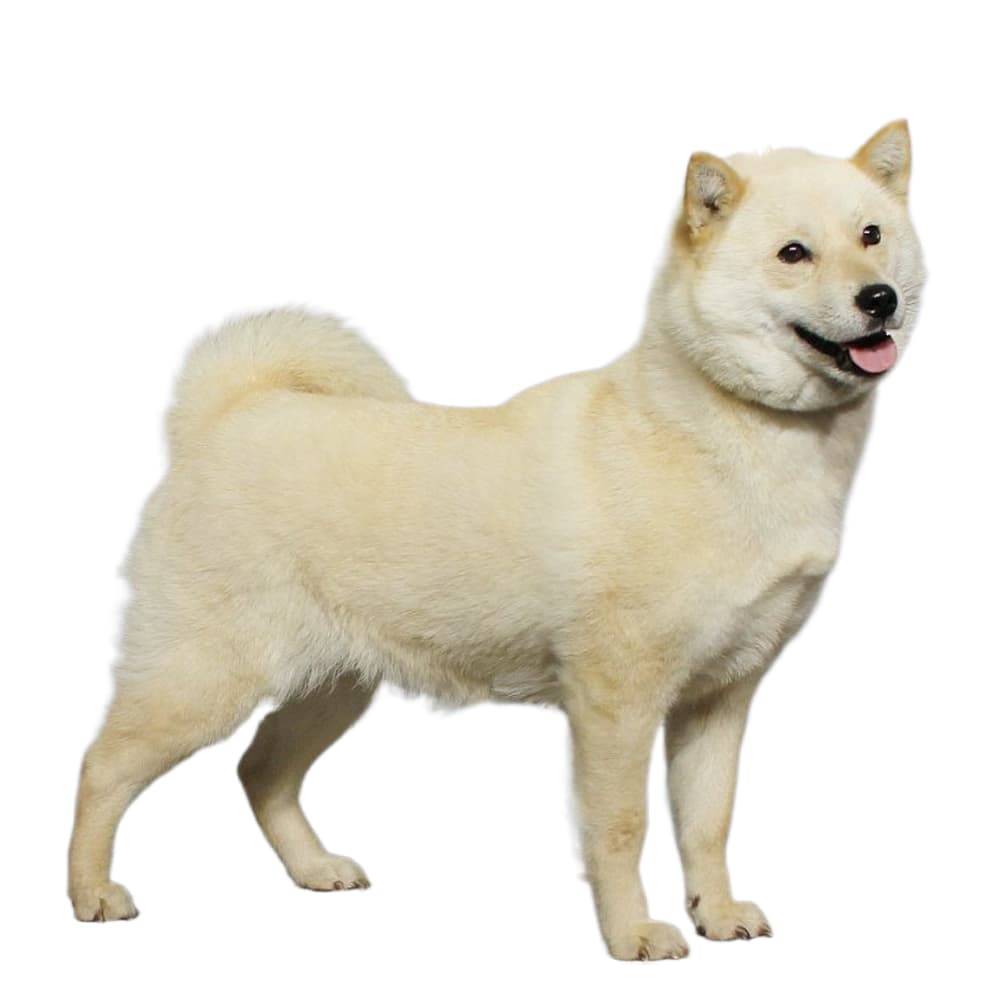Discover your dog's connection to this breed and 200+ others


Discover your dog's connection to this breed and 200+ others



The Hokkaido dog, also known as the Ainu Inu or Hokkaido Ken, is one of six native Japanese spitz breeds that originates from the northern regions of Japan, particularly Hokkaido island. It is one of the oldest and most primitive dog breeds in Japan, believed to have existed for centuries. The Ainu people, the indigenous inhabitants of Hokkaido, used these dogs for hunting and as companions, which contributed to the breed's development and preservation over time.
The Hokkaido breed is prone to anxiety, choroidal hypoplasia (Collie eye anomaly), epilepsy, heart murmurs, hip dysplasia, patellar luxation, psychogenic polydipsia, pica and uveodermatologic syndrome. Genetic testing is recommended, including for the following additional conditions: hyperuricosoria, degenerative myelopathy, and progressive rod-cone degeneration.
Hokkaido dogs are known for their loyalty, courage, and independence. They are intelligent and can be strong-willed, which may require consistent and patient training. Early socialization is important to help them get along well with other pets and children. Due to their hunting heritage, Hokkaidos may have a strong prey drive, so supervision around small animals is recommended.
The Hokkaido dog is also known by other names, such as Ainu-ken or Ainu Dog, referring to its connection with the Ainu people of Hokkaido.
The Hokkaido dog is one of the few remaining native Japanese breeds with a well-documented history.
They are named after the region where they originated - Hokkaido, the second-largest island of Japan.
This breed is recognized for its endurance and ability to work in rugged terrain, making them excellent hiking or trekking companions.
The Hokkaido dog is considered a "natural monument" in Japan, a designation given to protect and preserve their native breeds.
Doi:10.1002/9781119540687 https://www.akc.org/dog-breeds/hokkaido/ https://www.fci.be/en/nomenclature/HOKKAIDO-261.html
https://www.ukcdogs.com/hokkaido-ainu
https://www.petmd.com/horse/breeds/c_hr_hokkaido
Recommended by top vets with decades of experience
21 breeds
64 genetic health markers
50 genetic trait markers
